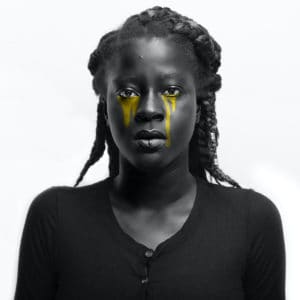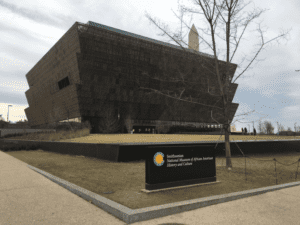
It is tempting to say the rally in Charlottesville to “Unite the Right” was ignorant. Or to call it bigotry. It’s easy to call this “divisions between people” or something else that analyzes, holds the situation at arm’s-length, and allows us to return to our plate of penne. But keeping our interaction with Charlottesville outside of ourselves only “others” those involved. What if we saw Charlottesville as a mirror, exposing us as we are, showing what is truly true in the United States. And if this is us, if this is representative of us, not some fringe incident but something that is a more public version of what is happening in cities across the United States everyday, then—for folks who live in America—what will you do?
The violence fueled by white supremacist racial hatred that happened in Charlottesville is not a symptom of ignorance; it is the result of living in a racialized society where we “other” each other and do not question our own bias.
I am not immune to implicit bias. I observe it in myself, in my unconscious reactions to people in stores—who do I think works there, who do I think is a shopper? I see it in the ways I respond to folks on the street. I’m trying to notice the stories I create about people without even realizing it—and then stop myself and check that against actual actions or evidence. I have a short attention span and only remember to check my bias for about ten minutes at a time. But even that little bit has been a humbling experience.
So these last few days as I’m sharing my outrage, concern, and anger on social media, I have felt convicted not only to condemn white supremacy and its deep connections to the American Christian church in the strongest possible terms, but to examine my own life. Where have I let implicit bias and the fruit of a racialized society infect my actions and heart, my circles of relationships, my family and my community? Are there places and spaces in which I’ve been silent, and therefore contributed to perpetuating generational racism?
As I look at the spotlight on racial hatred in Charlottesville, I have to confess, I see the seeds of racism and white supremacy in conversations and relationships around me all the time. And I have not always been faithful to speak out in the moment. Verna Myers, in her TED talk about overcoming bias, gives a great exhortation: we have to be courageous speak up boldly against bias, even (and perhaps most uncomfortably) to people we love. As a mother, I am particularly convicted by Myers’ challenge to engage (instead of dismissing) during moments of racial othering because there are always children listening. When children hear uninterrogated racist commentary, we can’t wonder why racist attitudes and actions continue generation after generation. Myers suggests that confronting racist speech can be as simple as saying, “We don’t say that about people anymore.”
When children hear uninterrogated racist commentary, we can’t wonder why racist attitudes and actions continue generation after generation.
Kristyn Komarnicki, who leads difficult conversations, has been helpful to me. I realize I bring my own experience, bias, and judgment to this moment. And nothing shuts down conversation, relationship, and intimacy like judgment. She’s cultivated a number of articles over the years that offer constructive ways to engage conflict and injustice. Kristyn especially emphasizes the importance of asking open-ended questions that allow people to share and hear one another. Micky ScottBey Jones, who lives and works at many intersections, reminds me that it is important to care for myself, even as I enter vulnerably into brave space. Micky has a lot of good reasons to stay behind a protective barrier, but she instead spearheads efforts to provide opportunities for people with deep disagreements to come together for a meal and transformative conversation.
Self-examination and the commitment to resist “othering” our neighbors is important work, but we’ve also seen that generations of just trying to heal racial wounds on a personal level isn’t enough. We have to engage with the ways that these racialized attitudes and racist views have crept into our community, our culture, our churches, and our institutions. If we do not actively work to divest every level of our society from racial biases, we will be informed by them.
Where are there places where we “other” people, and how can you actively work against policies, attitudes, practices, and rules that perpetuate the othering? What does this look like, in your neighborhood, in your attitude to government policies, in your church?
If we do not actively work to divest every level of our society from racial biases, we will be informed by them.
To do nothing is to passively absorb racist ideology. It is to allow ourselves to be formed by the world, and not transformed. To do nothing fails to invite the renewal of our minds that God promises will enable us to discern God’s will. This takes a commitment on a personal level to challenge our own views and bias. It takes courage to speak up, and engage with others in our lives. And it takes a willingness to live out Christian discipleship in the public space.
Church, we have work to do. For those living out their faith in the US context, no one gets to sit on the sidelines. This is an all-play situation. For those outside of the US, teach us, coach, and help us as we wrestle.
Nikki Toyama-Szeto is Executive Director of Christians for Social Action.



One Response
Amen, Nikki! You’re absolutely right- every member of the Body of Christ (particularly those in America) have a lot of work to do. I am a Southern Baptist pastor living in the same town where Heather Heyer grew up and went to school. Her grandparents live about a mile and a half away and her mother and stepfather live near one of my friends. I want to be a part of an unapologetically evangelical, nonviolent protest to white supremacists and their racism towards blacks and Jews. There is a local ministers organization that has welcomed ministers, rabbis, and imams from across the nation to join them in nonviolent protest to white supremacy, but their approach is largely interfaith/universalist and also refuses to uphold God’s standards on gender and sexuality as revealed in His Word. I’d welcome suggestions for evangelical organizations that have mobilized to respond to this sin with the loving witness of the gospel of Jesus.